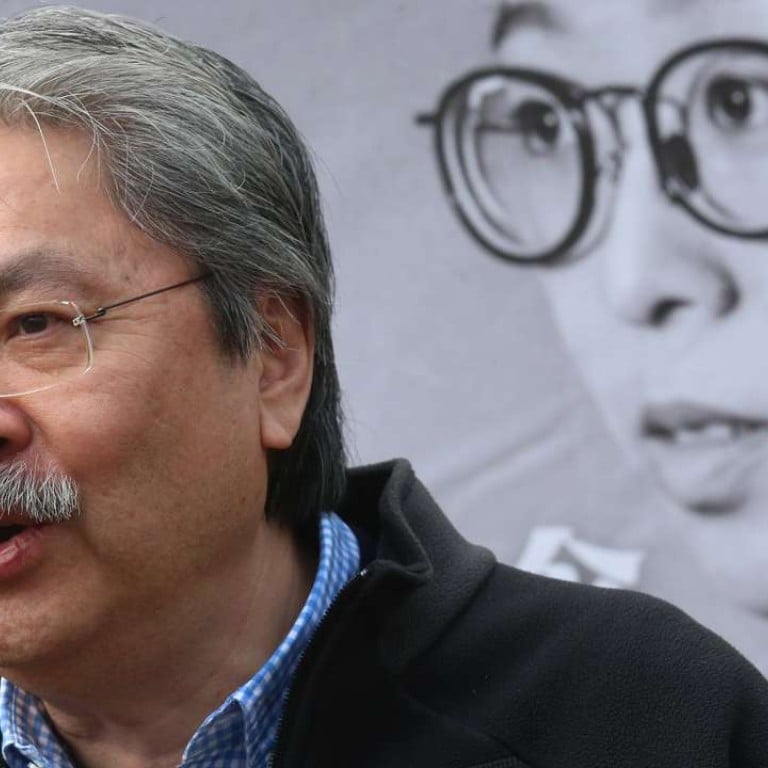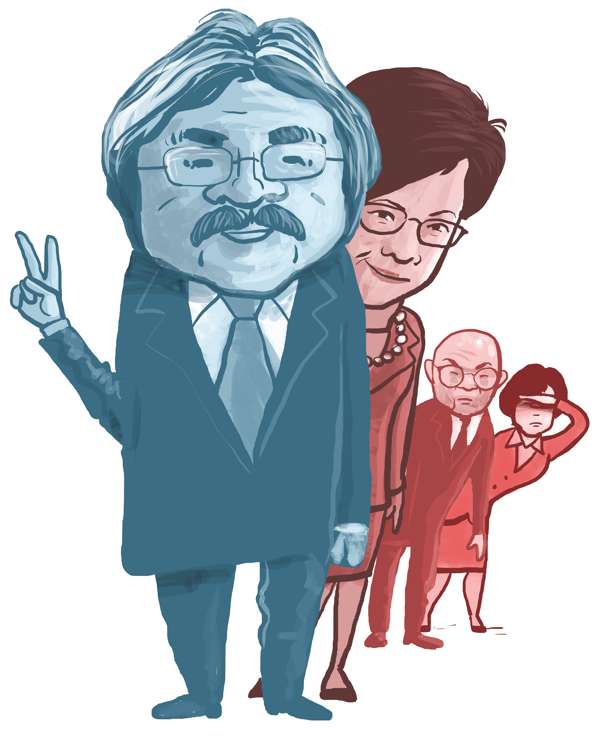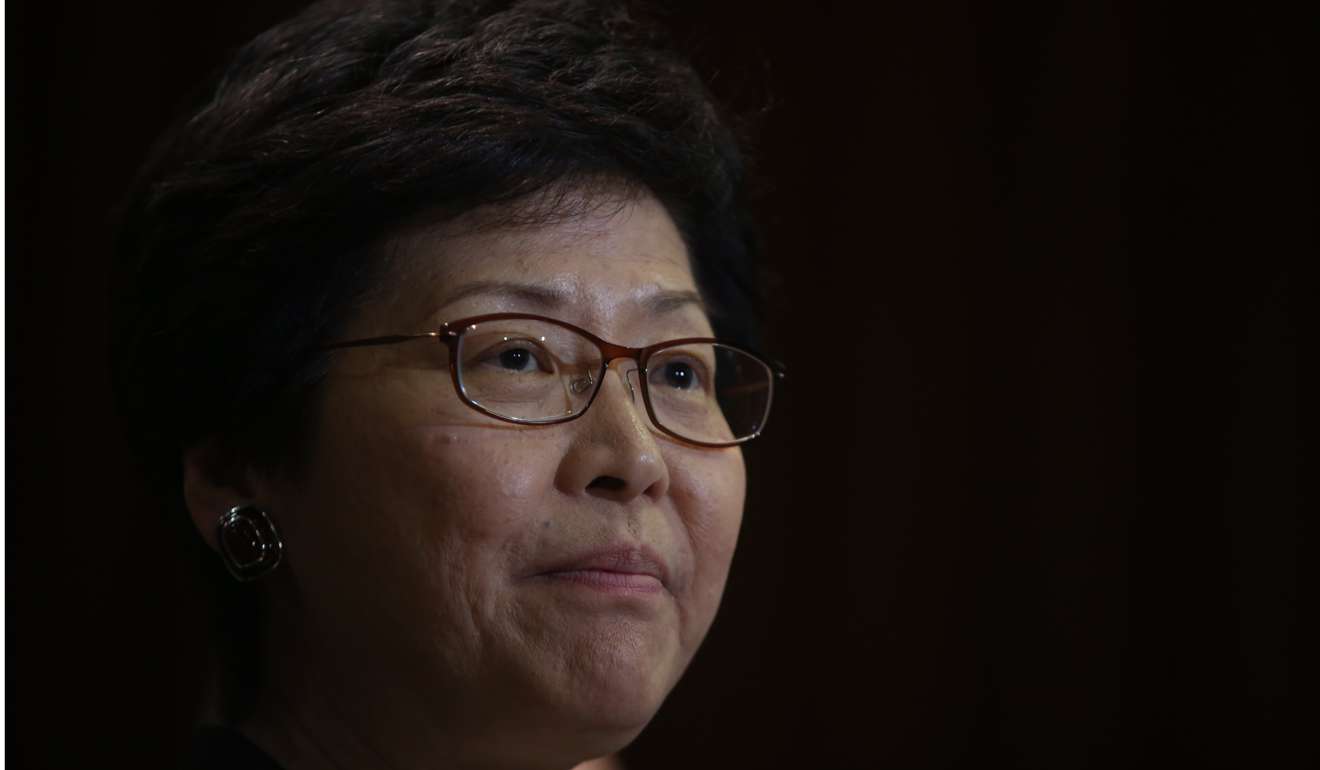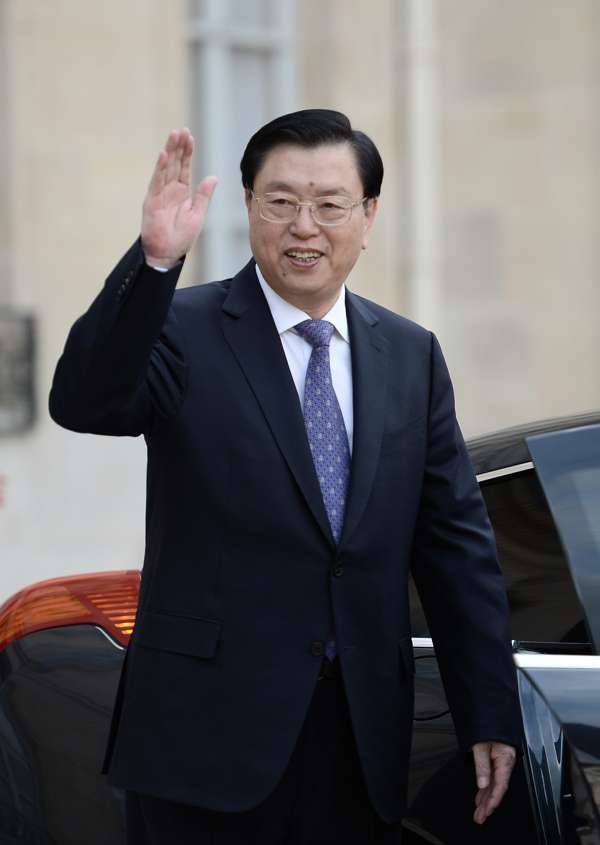
Patriot games and popularity in Hong Kong’s chief executive race
This year’s leadership election sees a sharp divergence between popular support and blessing from the central government in Beijing
A semblance of competition among pro-establishment candidates is better than no competition at all in the race to decide Hong Kong’s next leader in March.
At least that is the view of half of the people interviewed in a South China Morning Post-commissioned survey, when asked if the availability of such choice mattered to them.

Only one quarter of the 1,018 respondents thought it would be acceptable to have only one candidate from the pro-establishment camp competing in the election.
And another quarter declined to give an answer.
Further analysis of the poll results show that of those who identify themselves as “middle of the road” and “pro-establishment” in terms of political orientation, 54.6 per cent and 48.9 per cent respectively prefer the pro-establishment Election Committee members to back “more than one” aspirant to enter the race.
All aspirants must secure at least 150 nominations from the 1,194-member committee before they can then be considered for election.

“The desire for a more competitive race partly shows the public discontent with Lam,” said Dr Chung Kim-wah, a political scientist at Polytechnic University.
“Beijing’s endorsement may shore up support for Lam in the Election Committee. But this can risk ending up the kiss of death,” said Dr Chung.
“Lam’s popularity has been lagging behind Tsang’s,” Dr Chung said. “If she wins in the end, the public impression will be that the Election Committee has picked someone without popular mandate to be the next chief executive.

“There is little doubt that Lam can be a capable leader and she should have no problem withstanding the competition. But in politics, perception matters more,” he added.
Professor Francis Lee Lap-fung of the Chinese University agreed that the official endorsement factor would be unavoidable but warned it could make Lam’s life even more difficult even if she could win the election.
“The first thing Lam should do is distance herself from any news about Beijing endorsing her,” Professor Lee said.
The sources said two state leaders were in Shenzhen earlier this week to inform Hong Kong’s pro-establishment figures of the decision made over Christmas by the Communist Party’s highest body, the Politburo Standing Committee, to back Lam.
Sun Chunlan, a Politburo member and head of the party’s United Front Work Department, joined Zhang for the meetings to convey what was said to be “the central government’s collective decision” and they stressed that “it is not the position of any individual mainland officials”.
On Thursday, as the four chief executive aspirants lobbied for support among business chambers and parties, Tsang spoke of his chances without Beijing’s blessing. “I think the central government hopes that the election will be fair and competitive. I will continue to make efforts in gathering support from different organisations,” he said.
After a meeting with the Liberal Party, Lam was asked if the support of 194 members from the Friends of Hong Kong Association meant she was “almost certain” to win the race.
“There’s no such thing as ‘almost certain’ in an election,” she said. “I think electors are supporting me after considering my work in the government over more than three decades ... and they might agree with my governance vision for the next administration as well.”



